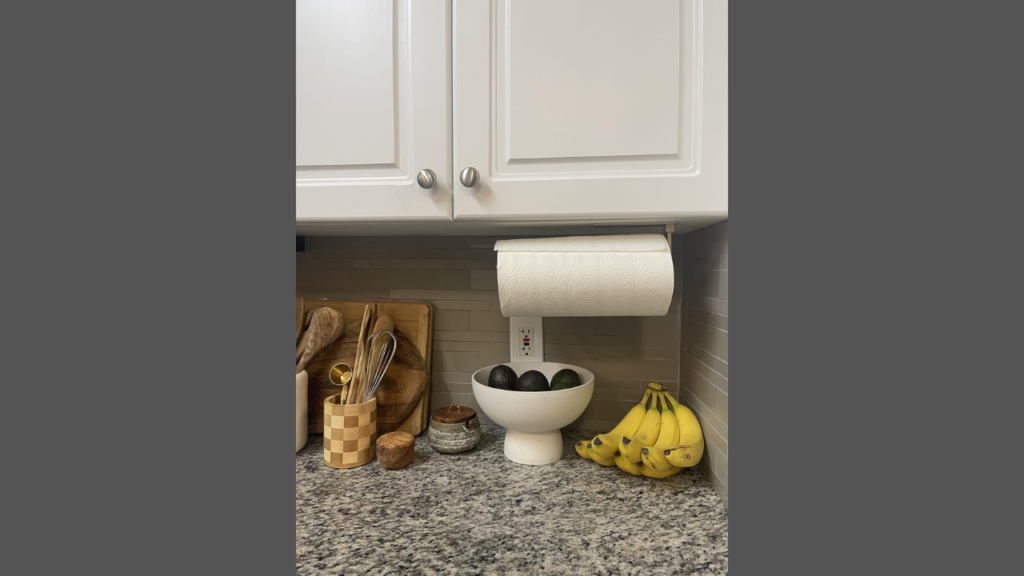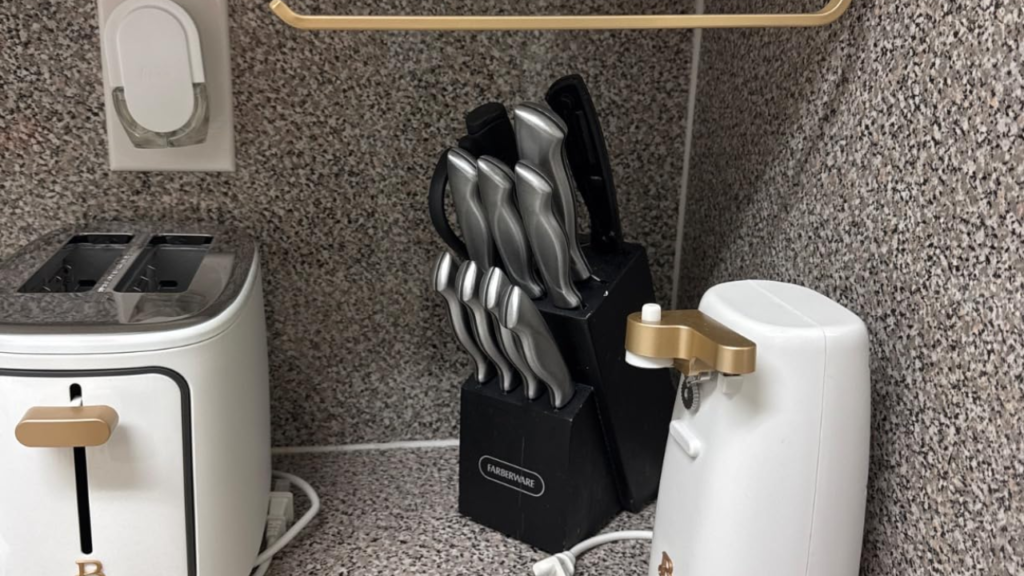Thinking about a kitchen remodel? Exciting, right? But let’s be real—it can also feel overwhelming. When I started my own remodel, I thought I had everything planned, only to realize I hadn’t accounted for delays, hidden costs, and the chaos of living without a kitchen. That’s why knowing how to prepare for a kitchen remodel is key to avoiding stress and surprises. In this guide, you’ll learn how to set a budget, plan efficiently, and keep your sanity intact. Let’s dive in and make your kitchen transformation smooth and successful!
Assessing Your Needs and Goals
Before you start tearing out cabinets or picking out countertops, take a step back. What’s your real goal for this remodel? Are you after a sleek, modern upgrade? More storage? Better functionality for cooking? Or maybe you’re thinking long-term and want to boost your home’s resale value. Defining your priorities now will save you time, money, and stress later.
Ask yourself these key questions:
- What’s frustrating about my current kitchen?
- How do I use my kitchen daily? Do I cook a lot or just reheat takeout?
- What features would make my life easier?
- Do I plan to sell my home soon, or is this my forever kitchen?
Once you’ve got a clear vision, it’s time to balance your budget vs. wishlist. We all want that dreamy marble island and top-of-the-line appliances, but costs add up fast. Prioritize the must-haves over the nice-to-haves. A pro tip? Invest in things you use every day—like quality cabinets and durable countertops—while saving on trendy extras that might not stand the test of time.
Choosing Materials and Appliances
Picking out materials and appliances is one of the most exciting parts of a kitchen remodel—but it can also feel overwhelming. With so many options, how do you choose? Let’s break it down so you can make smart decisions without the stress.
Cabinets, Countertops, and Flooring: What Matters Most
Cabinets are the backbone of your kitchen. They take up the most space, so they need to be both stylish and durable. Solid wood lasts forever but costs more, while MDF or laminate gives a sleek look for less.
Countertops? They set the tone for your kitchen. Quartz is super durable and easy to clean, while granite gives a high-end feel. But if you love the warmth of wood, butcher block is a cozy, budget-friendly choice.
Flooring needs to handle spills, foot traffic, and daily chaos. The tile is nearly indestructible, hardwood adds warmth, and vinyl is budget-friendly with endless style options.
Energy-Efficient & Smart Kitchen Appliances
Modern appliances make life easier. Energy-efficient fridges, dishwashers, and ovens cut down on utility bills while helping the planet. And if you love tech, smart appliances let you preheat your oven from your phone or get alerts when your fridge door is left open.
Pros & Cons of Different Materials
- Quartz: Durable, non-porous, and low-maintenance—but pricier.
- Granite: Natural beauty and heat-resistant, but needs sealing.
- Tile Flooring: Waterproof and long-lasting, but can feel cold underfoot.
- Hardwood Flooring: Timeless and warm, but needs extra care with spills.

Preparing Your Home for Remodeling
A kitchen remodel means your home will be a construction zone. Here’s how to stay sane during the process.
Set Up a Temporary Kitchen
Without a kitchen, even making coffee can be a struggle. Set up a mini kitchen in another room with essentials: a microwave, toaster, electric kettle, and a small fridge. Stock up on easy-to-make meals like sandwiches and salads.
Protect Your Home from Dust & Debris
Remodeling gets messy fast. Dust will try to sneak into every corner of your home. Seal off doorways with plastic sheeting, and cover nearby furniture. If possible, move valuables to another room.
Managing Daily Life During the Remodel
Living in a construction zone is tough. Plan for takeout nights, store pantry essentials in an easy-to-reach spot, and keep a sense of humor—it’ll all be worth it in the end!
Hiring the Right Professionals
Finding the right team for your kitchen remodel can make or break the experience. A great contractor keeps things on track, while a bad one? Well, let’s just say delays, budget blowouts, and headaches are on the menu. Here’s how to make sure you hire the best.
Questions to Ask Potential Contractors
Think of hiring a contractor like dating—you need to ask the right questions before committing. Here are a few must-asks:
- How long have you been in business? (Experience matters.)
- Can I see photos of past kitchen remodels? (Proof of work.)
- Do you have references I can call? (Happy clients = good sign.)
- Are you licensed and insured? (Non-negotiable.)
- What’s the estimated timeline? (No one wants a never-ending project.)
- How do you handle unexpected issues? (Because surprises happen.)
A good contractor won’t dodge these questions—they’ll answer confidently and honestly.
How to Vet References and Check Reviews
Never skip this step! Even if a contractor seems great, double-check:
- Read online reviews. Check Google, Yelp, and Houzz. Look for patterns—one bad review? Maybe a fluke. A bunch? Red flag.
- Call past clients. Ask about quality, timelines, and whether they’d hire the contractor again.
- Visit a past project (if possible). Seeing their work in person speaks volumes.
Trust your gut. If something feels off, keep looking.
Importance of Written Contracts and Timelines
A handshake isn’t enough—get everything in writing! A solid contract should include:
- Project timeline (Start and end dates.)
- Payment schedule (Never pay 100% upfront.)
- Detailed scope of work (No vague descriptions.)
- Who’s responsible for permits and materials (Avoid last-minute surprises.)
A good contractor is upfront about expectations. If they resist a written agreement? Walk away.

FAQs (Optimized for Featured Snippets & Voice Search)
How long does a kitchen remodel take?
A kitchen remodel usually takes 6 to 12 weeks, depending on the scope of work. A simple update (like new paint and countertops) might take just a few weeks, while a full renovation with new cabinets, flooring, and layout changes could stretch to 3 months or more. The key? Plan for delays! Material shipments, contractor schedules, and surprise issues (hello, hidden plumbing problems) can all add extra time.
What is the most expensive part of a kitchen remodel?
Cabinets take the biggest bite out of your budget—typically 30-40% of total costs. Custom cabinetry can cost $20,000+, while stock cabinets are much cheaper. Other pricey elements? Countertops and appliances. High-end stones like quartz or marble, plus top-of-the-line appliances, can quickly add thousands to the bill. If you need to cut costs, consider refacing cabinets instead of replacing them or choosing mid-range appliances over luxury brands.
How do I survive a kitchen remodel without a kitchen?
It’s tough—but doable! Set up a mini kitchen in another room with essentials like a microwave, toaster, coffee maker, and mini fridge. Plan for easy meals (think sandwiches, salads, and pre-cooked options). Stock up on disposable plates and utensils—unless you love washing dishes in your bathroom sink! And don’t forget to budget for takeout nights—you’ll need them.
Should I stay in my home during a kitchen remodel?
It depends! If you can handle noise, dust, and daily disruptions, staying home saves money. But if you’re dealing with a full gut renovation, no stove, and construction crews at 7 AM, you might want to stay elsewhere for a few weeks. If you do stay, set up a temporary kitchen and seal off the work area to keep dust under control.
Conclusion
Phew! Remodeling a kitchen is no small feat, but with the right prep, you can dodge the stress and focus on the excitement. The key? Plan, budget wisely, and stay flexible—because surprises will happen!
Remember to prioritize what matters most to you, whether it’s storage, style, or smart appliances. Set up a temporary kitchen, brace yourself for dust, and keep a sense of humor along the way.
Have you tackled a kitchen remodel before? Or are you gearing up for one now? Share your experience in the comments—I’d love to hear your wins (and lessons learned). And if you need more tips, check out my other guides to keep your project running smoothly. Happy remodeling!

I’m a writer and culinary expert with over 10 years of experience in the kitchen. As a graduate of the Institute of Culinary Education and a passionate home chef, I created KitchenBreez.com to share my knowledge of kitchen techniques, cooking tips, and the best kitchen gadgets. Whether you’re a seasoned cook or just starting, my goal is to help you make your time in the kitchen more efficient and enjoyable.
